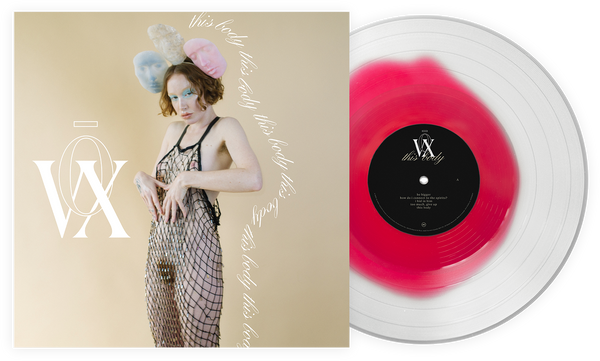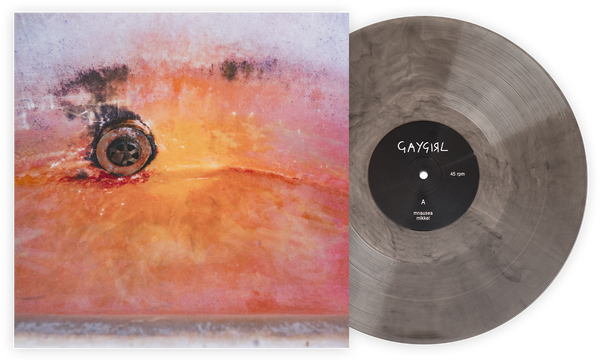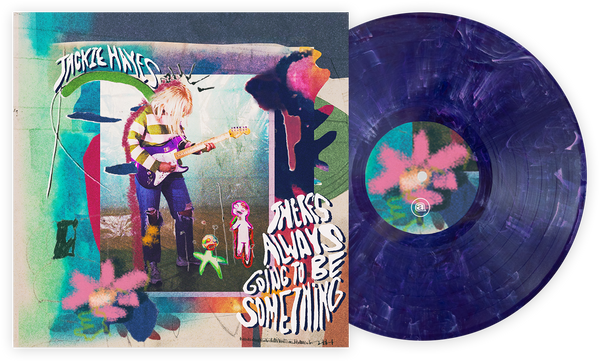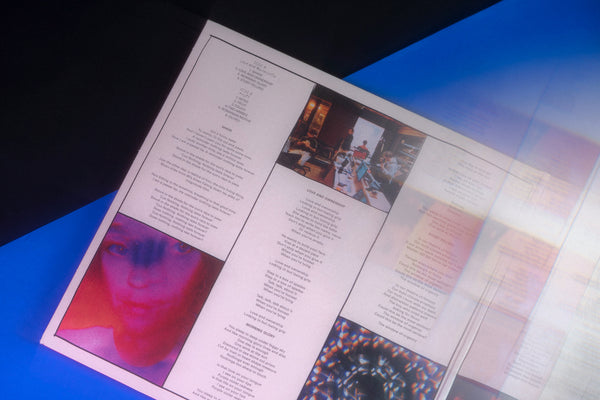VMP Rising adalah seri kami di mana kami bekerja sama dengan artis yang sedang naik daun untuk mencetak musik mereka ke dalam vinil dan menonjolkan artis yang kami yakini akan menjadi Hal Besar Berikutnya. Hari ini, kami mempersembahkan Lately, EP debut dari Still Woozy.
The music Sven Gamsky makes under the name Still Woozy is the epitome of chill. His 2019 EP Lately, which arrived after a two-year string of wildly successful singles, is a 13-minute cross joint of poolside psych-pop and breezy R&B. All five songs are under three minutes, propped up by bulbous basslines, draped with wobbly guitar strums, and centered around Gamsky’s croon that hits like a Newport drag; minty, ashy, and nonetheless strangely pleasant.
However, despite his lackadaisical delivery and the perma-fried aura of his compositions, the 27-year-old Californian is an incredibly diligent worker who thrives in the joyful chaos of house parties and forges his music in the fires of his own OCD. “I have really crazy OCD that kind of comes out in music,” Gamsky says while calling from the road on his way to a performance in Houston. “I will spend so long making music and tweaking every little thing, and when I do revisions on songs I do like 30 versions, 40 versions.”
Gamsky’s family is full of type A medical professionals (his mom’s a nurse, his dad’s a doctor, and both of his brothers are in med school), but he says that he always gravitated toward writing and playing songs. He started playing guitar at the age of nine and would go on to study music at UCSC, but the formalities of academia never catered to his workstyle. “I’m the kind of person that really loves making my own schedule and not being told what to do. So I flourished outside, [spending] way more energy on projects outside of school.”
After a five-year stint in a math-rock band he formed in 2017 in college (more on that later), Gamsky decided it was time for him to pursue a long-overdue solo career. Both then and now, Still Woozy is entirely Gamsky’s endeavor. Aside from a couple featured singers on Lately, he writes, arranges, plays, records, and, most importantly, produces everything himself. “It was kind of a big change when I realized I didn’t have to do shit in a nice studio,” he says while reflecting on the early Still Woozy material and how working independently influenced his sound. “I’m extremely particular about how the mix sounds, how it gels with the grooves. I get heavy into that.”
In just two years, all of Gamsky’s songs have amassed millions of streams on Spotify, YouTube, etc., and he’s out headlining venues as big as Webster Hall in NYC (a 1,400-person capacity concert space). The mid-2010s will likely be defined by the sudden domination artists like him; those who found immense success through self-releasing their music onto major streaming platforms, retaining full control over their creative output, and headlining tours before even dropping a debut album.
We chatted with Gamsky about how his stint in a math-rock band informed his career, learning how to craft what he hears in his head, and what he loves about the intimacy of house shows.
Our conversation has been condensed and edited for clarity.
** VMP: I read that you were in a math-rock band called Feed Me Jack for a little while. When did that come about?**
Sven Gamsky: That was in the beginning of college. I was in the quad and I heard this beautiful guitar wafting down from the dorms. And I figured out which window was open and which floor it was and which room it was, and I knocked on the door and it was this dude I’d never met. And we just sat down and started playing instantly. And I showed him a song and then he recorded it and then he wrote a bassline to it and it was just a band, basically. Out of total happenstance.
We were together for four or five years. We played a lot in Santa Cruz, we played a lot of house parties. House parties are where I became a musician. Those are some of my favorite energies from a crowd and that’s, I guess, what I try to bring to [Still Woozy] live shows. I like the environment of a live show where somebody can push you over and you’ll just keep going. There’s no energy lost between you and the crowd, it’s that instant intimacy — it’s just my favorite.
When Feed Me Jack fizzled out were you like, “Alright, I’m going to start a solo career,” or were you just casually starting to write your own songs?
I knew that I couldn’t be in the band anymore because I had ideas for how I wanted to do things differently in the project, and I kind of got pushback from that. And I was like, “I’m sorry I just have to make music for me now,” because I felt like it was a waste of time, wasting everyone’s time, if we’re not on the same page. You only have a finite amount of time to create and do all of these things that you want to do, so I was like I can’t waste anymore time not doing exactly what I want. Just taking back the control of all that stuff was really kind of freeing for me and that was a huge weight [off my shoulders].
I didn’t even necessarily immediately jump into it, I was just going to try to make things closer to what I hear in my head and see where that goes. And it just turned into, “OK, maybe I should release this.” And I showed it to my friends and they were enjoying it, so that kind of gradually made that transition.
What were some of the things that you knew you wanted to do that you weren’t able to do in your band?
Just make pop songs. Math-rock has this mission statement of being complicated for the sake of being complicated, a lot of the time. And adding these things to make it more virtuosic and that doesn’t really resonate with me when I think of the music I grew up on. Like, pop music. Not Britney Spears pop music but pop songs, pop structures. And this simple, emotionally driven more than technically driven music … And being more vocally centric, too. That was a huge part of it. The music we were making before, we had written all these instrumental parts and the vocals were kind of like an afterthought, and I didn’t want to do that anymore.
The first Still Woozy song was “Vacation.” Walk me through how it blew up.
“Vacation” didn’t actually take off. I remember checking back on my SoundCloud and I had nine listens that day on that song. And I was like, “OK, I’m just going to keep working.” It was kind of cool though because I put that out and it still felt like it had remnants of Feed Me Jack. And so I was able to put this out and see there’s parts I really love about it, but also I could acknowledge that there are other parts that aren’t as immediate or are things that don’t grab you right away.
So “Cooks” was kind of a response to that song to try something different. I had all this freedom and I could just do whatever. So “Cooks” came and that was the one that actually had success and then after that people started listening to “Vacation” more on Spotify and shit.
Were you promoting it really heavily or did people just kind of find it?
First of all, I uploaded it to Distrokid. To anybody reading this who doesn’t have a lot of money and they want to put their music out, they should just pay $20 a year and just have all their music distributed to all the platforms through Distrokid. That’s huge ’cause it can get playlisted through that.
I also emailed YouTube channels that had built-in subscribers and I was like, “Hey, here.” And maybe someone picked it up from that, but it started to get some sort of traction through YouTube. David Dean Burkhart reposted some of the first stuff [“Cooks” has since garnered 1 million views on that channel], so that was huge.
I find it interesting that you were just releasing singles for a while and getting all your traction off of singles. Was that something that was part of your plan to drop loosies?
Yeah, that was part of the plan that was different from the band I was in before. We had made albums and I saw, from a business standpoint, we weren’t huge, right? So we’d spent all this time and energy making these albums and people would only hear a couple songs. But we put our heart and soul into the other songs, so what’s the deal with that?
When this project came around I was like, “Alright, I’m not gonna do that.” It makes you more mobile to only do one song at a time because then you can adjust and you’re not pinned down to a certain thing so you have more of a response. That was one of the things I set out to do with the new project. That and not tour before I have an audience. We tried that in the band before and it’s so energy-draining to plan this tour yourself … And maybe six, seven, 10 people will show up.
Are you the type of person who’s always writing and working on multiple songs? Or are you literally like, “I’m gonna work on this song until it’s ready and then put it out, and then start another one.”
The first couple songs, that’s what I was doing. I was just devoting all the time and energy into one song at a time. But now I feel like I have to do more. If I had all the time in the world that’s what I would do, I would focus on one at a time. But I feel like now there’s more deadlines, there’s more things to do, so I’m kind of trying to expand a little more in that way.
I’m pretty slow at working to be honest. I take my time and get things right and that’s my favorite environment. But also I don’t acknowledge that there are so many good things to be gleaned from other people’s work ethics.
You do basically everything yourself right now, but is collaborating in your music something you’re interested in doing more of?
Yeah, I love collaboration, I just want to have control over the end product. That’s what it comes down to … I’ve collaborated with a decent number of people already so it’s not that I don’t like collaboration. I just need to have the mix in my hands and run it through my speakers, run it through my car, and do all of the work on it.
I’m curious how you approach performing your songs in a live environment. Describe to me what a Still Woozy concert is like.
It’s a house show vibe. I want it to feel intimate, I like to look people in the face and sing with them and sing to them. And, like, go into the crowd and meet people and dance with people. It’s just kind of an intimate thing. I hate it when people are disconnected. I’ve been to so many shows when people are staring at their feet the whole time. It’s like, I don’t need to be here I can just listen to this at home. It’s fun for me, I’m gonna fun if I’m interacting with the crowd.
Eli Enis is a writer and editor who lives in Pittsburgh, cares way too much about music, and drinks way too much seltzer.
Bergabung dengan Klub!
Bergabunglah sekarang, mulai dari 44 $Exclusive 15% Off for Teachers, Students, Military members, Healthcare professionals & First Responders - Get Verified!








